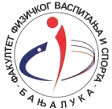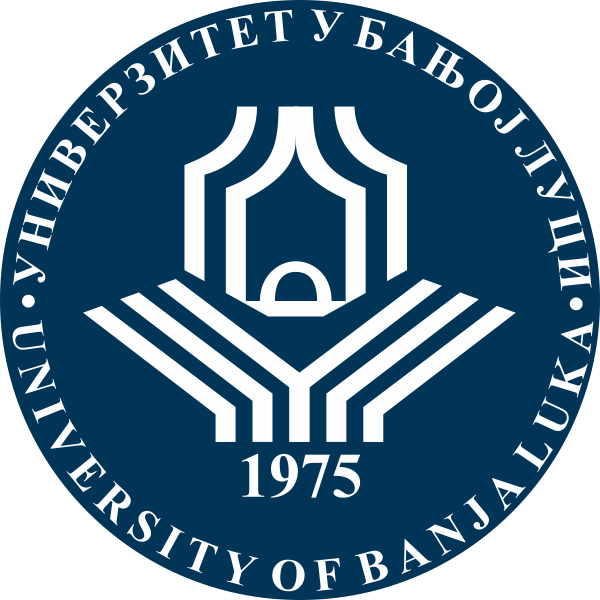SportLogia
Vol. 8, Issue 1, June 2012.
MUSLIMS SCHOOLGIRLS' IDENTITY AND PARTICIPATION IN SCHOOL-BASED PHYSICAL EDUCATION IN ENGLAND
António Gomes Ferreira1 and José António Moreira1
1Faculty of Psychology and Educational Sciences, University of Coimbra, Portugal
2Department of Education and Distance Learning, Open University, Portugal
ORIGINAL SCIENTIFIC PAPER
doi: 10.5550/sgia.120801.en.029M
COBISS.BH-ID: 2934552
UDK: 371.212:796/799(410)
Summary
This article draws from an ethnographic case study of a group of Muslim schoolgirls at two schools in England. It examines the issues surrounding their religious and ethnic identity and whether this conflicts with participation in school-based Physical Education (PE). Social Identity Theory underpinned the study, focusing the research and interpretation of empirical data gathered over a period of twenty months, mainly by in-depth semi-structured interviews to explicate the PE experiences through employment of a qualitative methodology.
The social categories of ethnicity and religion play a key part in shaping the identity of Muslim schoolgirls. The girls perceive PE as a subject, which allows for freedoms not found elsewhere in the curriculum and they recognise the importance of physical activity. The study confirms the findings of previous research, which found that issues of kit, fasting during Ramadan and extra-curricular activities posed problems for Muslim pupils; these are features, which are especially compounded when teachers are not aware of the issues.
The findings demonstrated the exclusionary nature of traditional physical education settings. The experiences of pupils were more reliant upon the quality of individual teachers. Multi-cultural and racism-awareness courses appear to be indispensable for a better understanding of the pupils, and making them available to all teachers, regardless of their hierarchical standing, can be advantageous.
Key words: identity, Islam, muslim schoolgirls, physical education, religion.
References
Abbas, T. (2004). After 9/11: British South Asian Muslims, Islamophobia, multiculturalism and the state. American Journal of Islamic Social Sciences, 21(3), 26−38.
Anwar, M. (1985). Pakistanis in Britain. London, UK: New Century.
Archer, L. (2002). "It's easier that you're a girl and that you're Asian: interactions of race and gender between researchers and participants". Feminist Review, 5(4), 108−132. doi: 10.1057/palgrave.fr.9400043 ![]()
Archer, L. (2005). Muslim adolescents in Europe, in Developing Identities among Adolescents. European Issues, 55−70.
Armour, K., & Jones, R. (1998). Physical Education Teachers’ Lives and Careers: PE, Sport and Educational Status. London, UK: Falmer Press.
Basit, T. N. (1995). Educational, social and career aspirations of teenage Muslim girls in Britain: an ethnographic case study (Unpublished doctoral dissertation). Department of Education, University of Cambridge.
Benn, T. C. (1996). Muslim women and physical education in initial teacher training. Sport Education and Society, 1, 5–21. doi: 10.1080/1357332960010101 ![]()
Benn, T. C. (1998). Exploring the experiences of a group of British Muslim women in initial teacher training and their early teaching careers (Unpublished doctoral dissertation). Loughborough University.
Benn, T. C. (2005). Race and physical education, sport and dance. In K. Green and K. Hardman (Eds.) Physical Education; Essential issues (pp. 197−219). London, UK: Sage. doi: 10.4135/9781446215876.n12 ![]()
Benn, T. C., Dagkas, S., Jawad, H., Miles, H., Whitworth, R., Rashid, N. S., ... Begum. F. (2008). Improving Participation of Muslim Girls in Physical Education and School Sport: Shared Practical Guidance from Birmingham Schools 2008, Birmingham City Council Launch of Guidelines. Birmingham, UK: Birmingham City Council.
Benn, T. C. (2009). Muslim Women in Sport: A Researcher’s Journey to understanding Embodied faith. International Council for Sports Science and Physical Education, Bulletin, 55, 48–56.
Black, T. R. (1999). Doing Quantitative Research in the Social Sciences. London, UK: Sage.
Bourdieu, P. (1993). The Field of Cultural Production Essays on Art and Literature. Oxford, UK: Polity Press.
Carroll, B., & Hollinshead, G. (1993). Ethnicity and conflict in physical education. British Educational Research Journal, 19, 59–76. doi: 10.1080/0141192930190105 ![]()
Clyne, I. (1994). Beyond Bay 13. Aussie Sport Action, 5, 5−9.
Coakley, J. (2007). Sports in Society Issues and Controversies. London, UK: McGraw Hill Higher Education.
Dagkas, S., & Benn, T. C. (2006). Young Muslim women’s experiences of Islam and physical education in Greece and Britain: a comparative study. Sport Education and Society, 11(1), 21−38. doi: 10.1080/13573320500255056 ![]()
Delamont, S. (1980). The Sociology of Women. London, UK: George, Allen & Unwin.
Espositio, J. L., & Mogahed, D. (2007). Battle for Muslim’s Hearts and Minds: The road not (yet) taken. Middle East Policy, 14(1), 27−41. doi: 10.1111/j.1475-4967.2007.00281.x ![]()
Evans, J., Davies, B., & Wright, J. (2004). Body Knowledge and Control: Studies in the Sociology of Physical Education and Health. London, UK: Routledge.
Fekete, L. (2008). Integration, Islamophobia and civil rights in Europe. London, UK: Institute of Race Relations.
Flintoff, A., Fitzgerald, H., & Scraton, S. (2008). The Challenges of Intersectionality: Researching difference in Physical Education. International Studies in Sociology of Education, 18(2), 73−85. doi: 10.1080/09620210802351300 ![]()
Garrett, R. (2004). Negotiating a Physical Identity: Girls, Bodies and Physical Negotiating a Physical Identity: Girls, Bodies and Physical Education. Sport, Education and Society, 9(2), 223−237. doi: 10.1080/1357332042000233958 ![]()
Goffman, E. (1990). The Presentation of Self in Everyday Life. London, UK: Penguin.
Goodwin, L. J. (2007). The Inclusion of Children with Physical Disabilities in Physical Education. Rhetoric or Reality? (Unpublished doctoral dissertation). University of Surrey.
Hargreaves, J. A. (1985). Playing like gentlemen while behaving like ladies: Contradictory features of the formative years of women’s sport. The British Journal of Sports History, 2, 40−52. doi: 10.1080/02649378508713562 ![]()
Hargreaves, J. A. (1994). Sporting Females: Critical Issues in the History and Sociology of Women’s Sport. London, UK: Routledge.
Human Rights Act (1998). A Guide to the Human Rights Act 1998. Available at http://www.justice.gov.uk/about/docs/act-studyguide.pdf.
Hutnik, N., & Street, R.C. (2010). Profiles of British Muslim identity: Adolescent girls in Birmingham. Journal of Adolescence, 33(1), 33−42. doi: 10.1016/j.adolescence.2009.05.016 ![]() ; PMid:19683339
; PMid:19683339
Jacobson, J. (1998). Islam in transition: Religion and identity among British Pakistani youth. London, UK: Routledge.
Kamiyole, A, O. (1993). Physical Educators Albatross in African Muslim Societies. International Journal of Physical Education, 30, 28−31.
Khan, S. (2002). Aversion and desire: negotiating Muslim female identity in the diaspora. Women's Press.
Kirk, D., MacDonald, D., & O'Sullivan, M. (2006). The handbook of physical education. London, UK: Sage.
Lenskyj, H. (1990). Power and play: Gender and sexuality issues in sport and Physical activity. International Review for Sociology of Sport, 25, 235− 243. doi: 10.1177/101269029002500305 ![]()
Lindsay, K., McEwan, S., & Knight, J. (1987). Islamic Principles and Physical Education. Unicorn, 13(2), 75−78.
Lomax, P. (1978). The Attitudes of Girls, with Varying Degrees of School Adjustment, to Different Aspects of their School Experience'. Educational Review, 30(2), 117−124. doi: 10.1080/0013191780300205 ![]()
MacClancy, J. (1996). Sport, Identity and Ethnicity. Oxford, UK: Berg.
Mashall, C., & Rossman, G. B. (1989). Designing Qualitative Research. Newbury Park, CA: Sage.
Muslim Council of Britain (2007). Towards Greater Understanding. Meeting the needs of Muslim pupils in state schools. Information and guidance for schools. Available at http://www.mcb.org.uk.
Newcomb, T. M. (1961). The acquaintance process. New York, NY: Holt, Rinehart, & Winston. doi: 10.1037/13156-000 ![]()
Ramji, H. (2003). Engendering Diasporic Identities. In N. Puwar and P. Raghuram (Eds) South Asian Women in the Diaspora (pp. 227–242). Oxford, UK: Berg.
Rex, J, & Josephides, S. (1987). Asian and Greek Cypriot Associations and Identity. In: J. Rex, D. Joly, and C. Wilpert (Eds.) Immigrant Associations in Europe (pp. 11−21). Aldershot, UK: Gower.
Richardson, R. (2004). Islamophobia: Issues, challenges and action. Stoke-on-Trent, UK: Trentham.
Rubin, Z. (1973). Liking and Loving. New York, NY: Holt, Rinehart, and Winston.
Rumbaut, R. G. (1994). The Crucible within: Ethnic Identity, Self-Esteem, and Segmented Assimilation among Children of Immigrants International Migration Review, 28(4), Special Issue: The New Second Generation, 748−794.
Runnymede (1997). Islamophobia – Its Features and Dangers. A TRUST Consultation Paper. London, UK: Runnymede Trust.
Sarwar, G. (1994). British Muslims and Schools. London, UK: Muslim Education Trust
Scraton, S. (1992). Shaping up to Womanhood: Gender and Girls’ Physical Education. Milton Keynes, UK: Open University Press.
Shain, F. (2002) The Schooling and Identity of Asian Girls. Stoke-on-Trent, UK: Trentham Books.
Sharpe, E. J. (1976). The Limits of Inter-Religious Dialogue. British Journal of Religious Education, 16(1), 9−13.
Skidmore, D. (2004). Inclusion: The Dynamic of School Development. Maidenhead, UK: Open University Press.
Tajfel, H. (1978). Differentiation between Social Groups. London,, UK: Academic Press.
Talbot, M. (1993). A Gendered Physical Education. In L. J. Goodwin (2007) The Inclusion of Children with Physical Disabilities in Physical Education. Rhetoric or Reality? (pp. 74−89) (Unpublished doctoral dissertation). University of Surrey.
Verma, G. K., & Bagley, C. R. (1979). Race, Education and Identity. London, UK: Macmillan.
Verma, G. K., & Ashworth, B. (1986). Ethnicity and Educational Achievement in British Schools. London, UK: Macmillan.
Williams, A., & Bedward, J. (2001). Gender, Culture and the Generation Gap: Student and Teacher Perceptions of Aspects of National Curriculum Physical Education. Sport, Education and Society, 6(1), 53−66. doi: 10.1080/13573320123581 ![]() ; doi: 10.1080/713696037
; doi: 10.1080/713696037 ![]() ; doi: 10.1080/13573320120033881
; doi: 10.1080/13573320120033881 ![]()
Wright, J., Macdonald, D., & Burrows, L. (2004) Critical Inquiry and Problem-solving in physical education. London, UK: Routledge.




